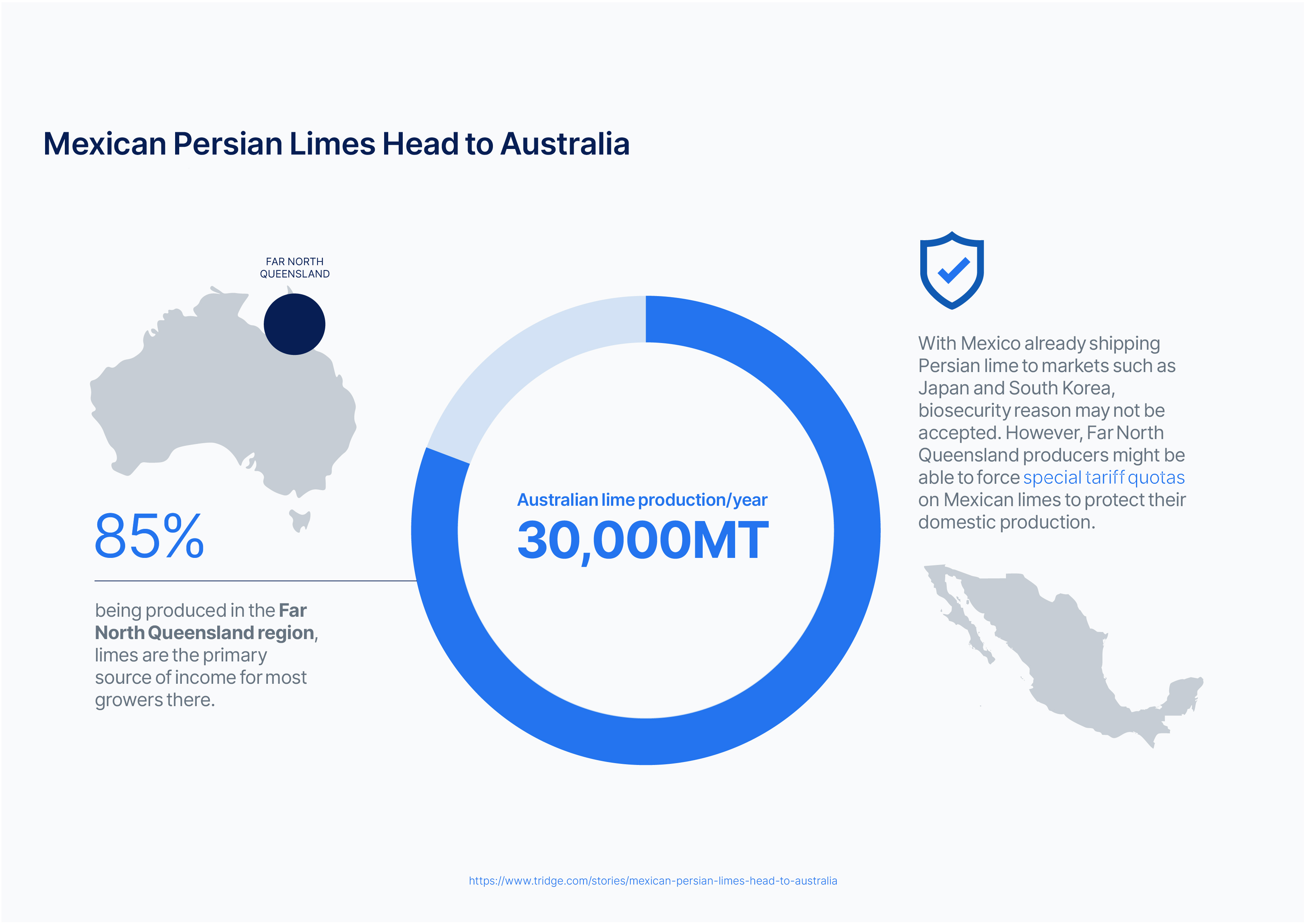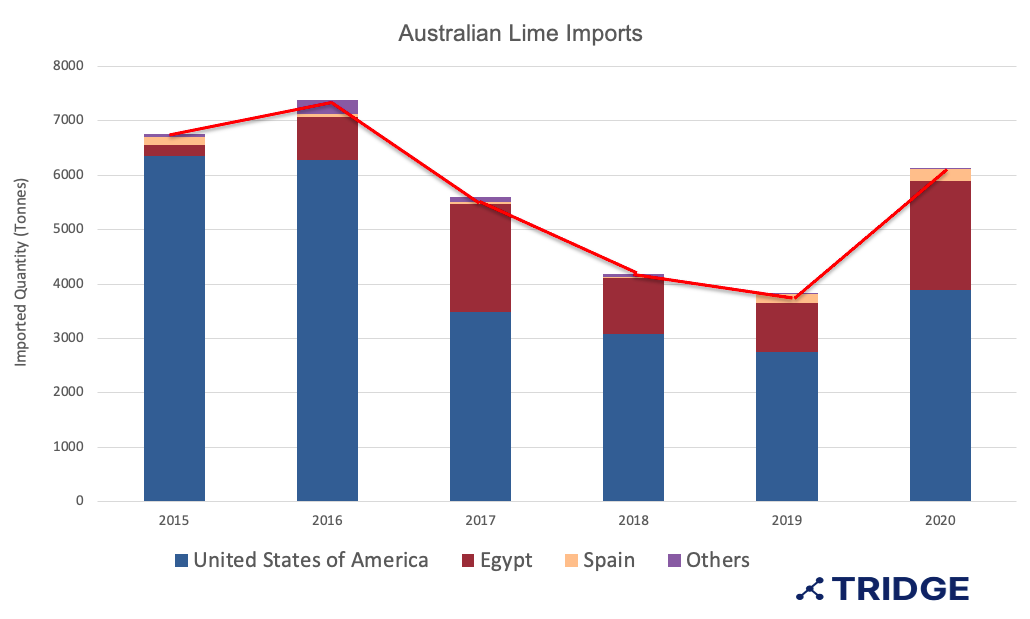
In late May of 2021, the National Service for Agri-Food Health Safety and Quality (SENASICA) announced that they would work with the Australian Department of Agriculture to establish sanitary protocols for importing Mexican Persian lime into the country. The Australian representatives have recommended opening the entry of Mexican citrus fruits and informed that phytosanitary controls would mirror other controls already established with other countries without additional measures.
Australian Lime Industry
The acceptance from the Department of Agriculture to open the entry to Mexican Lime with already established protocols for other lime suppliers has caused the horticultural advocacy group, Far North Queensland Growers, to formally oppose the new trade. The advocacy group, which represents more than 50 growers from the region, has presented a formal submission requiring the Department to review the biosecurity risks of Mexican lime. Furthermore, the growers union is concerned that allowing these imports would damage the domestic production of local farms at a time when labor is difficult to access, and they are still recovering from the impact of the pandemic on the domestic market.

Citrus consumption since the pandemic has increased worldwide, and Australia is not an exception to this trend. Australia produces about 30,000 tonnes of limes each year, with 28,000 tonnes produced in Far North Queensland all year round. In 2020, Australia imported 6,125 tonnes of limes to complete its demand, a 37.6% increase from the previous year. Lime imports accounted for USD 11.6 million last year, in which the US was the leading supplier with 77.6% of the import share, followed by Egypt (19.%) and then Spain (2.7%). All three countries have a biosecurity protocol established to assure import conditions are met, which is the same protocol that will be set for Mexican imports. However, for the Far North Queensland Growers, mirroring conditions from other suppliers won't do for Mexican imports.
Mexican Lime in the Australian Market
Mexico is the world’s second-largest lime producer, growing almost 3 million tonnes each year. It is also the second-largest lime exporter in the world, just behind Spain. The Persian lime variety has had a significant boom in international markets in recent years due to its less acidic flavor, extended shelf life that makes it perfect for sea freight, and its seedless practicality. With a good variety, large-scale production, and a competitive price, Mexican Persian lime has a solid opportunity to gain significant market share within the Australian consumer market. Mexican lime shipments will arrive by sea once authorized, which will help keep a lower cost.
With almost 85% of the national output produced in the Far North Queensland region, limes are the primary source of income for most growers. Therefore, the growers' concerns seem to respond more to a fair trade situation, where they feel threatened by the arrival of a lower-priced product. However, biosecurity measures in Australia are taken very seriously, which is why the Department will review the growers’ statement as part of the general assessment.
Mexican food exports to Australia exceed USD 6 million annually, mainly due to sesame, asparagus, mango, papaya, and grape shipments, with all of those meeting the phytosanitary inspection required in Australia. With Mexico already shipping Persian lime to markets such as Japan and South Korea, there is no reason to believe that the Australian Department of Agriculture will deny Mexican lime imports for biosecurity reasons. However, Far North Queensland producers might be able to force special tariff quotas on Mexican limes to protect their domestic production.
Sources:
- El Universal. "México trabaja en protocolos sanitarios para exportar alimentos a Australia."
- Fresh Plaza. "Proposed lime imports an unacceptable biosecurity risk."
- Lider Empresarial. "Australia, en la mira de productores de carne de cerdo, limón, guayaba y melón."
- North Queensland Register. "Tableland growers warn Mexican lime imports will pose major biosecurity threat."




